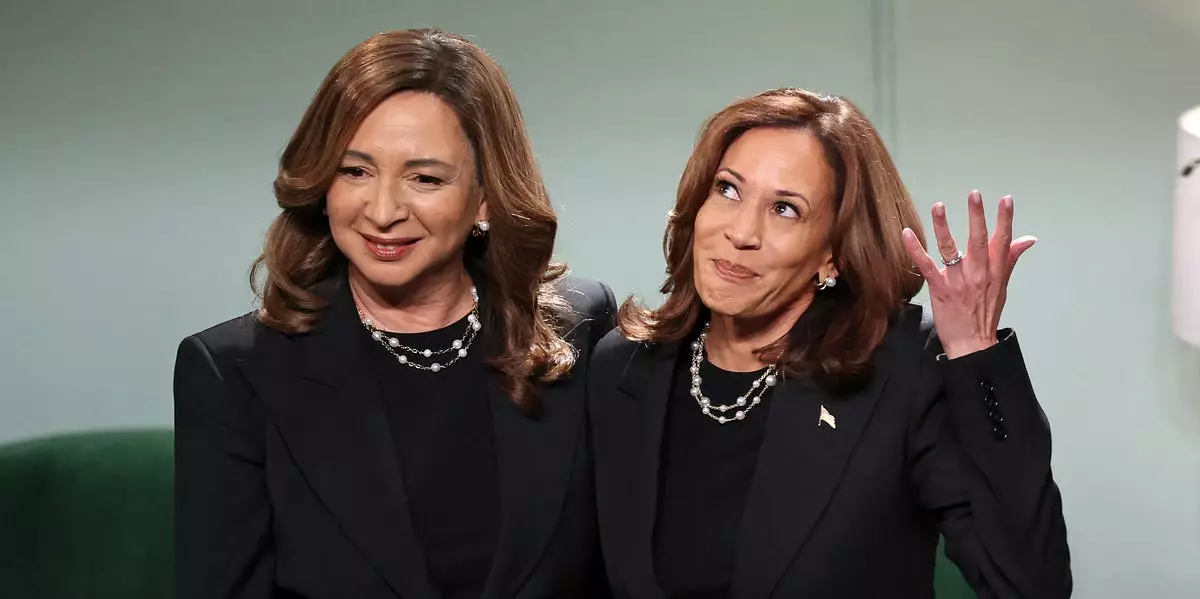On a lively Saturday night, Vice President Kamala Harris stepped into the limelight in an unexpected cameo on *Saturday Night Live* (SNL), sharing the stage with Maya Rudolph, who delivered an impressive impersonation of her. This surprise appearance captured the attention of viewers, particularly in the context of the ongoing political tensions leading up to the elections. Harris’s involvement wasn’t simply for entertainment; it was a strategic move that aimed to connect with a younger audience while injecting levity into current political dialogues.
The episode kicked off with a sketch that satirized Donald Trump, portrayed by James Austin Johnson. Trump’s character painted a picture of exhaustion, admitting to the audience that he was “running on fumes.” Such humor serves as both a satire of Trump’s rallying style and a broader commentary on the pervasive exhaustion felt by political leaders amidst chaotic campaigns. Lines that nod to violence, “the last time I hated a Mike this much I tried to have him killed,” while shocking, tap into a darker societal recognition of political discontent. This bold approach showcases SNL’s trademark ability to fuse comedy with biting social critique.
Empowering Representation
As the sketch progressed, it provided a platform for more voices in the political arena. The appearance of Andy Samberg as Doug Emhoff and Jim Gaffigan as Tim Walz further underscored the importance of diverse representation within the political commentary sphere. Through humorous interactions, SNL created a space for reflection on the challenges faced by political figures, particularly those from marginalized backgrounds.
Harris’s introduction into the sketch was not merely a highlight; it was a bolstering moment of empowerment. The dialogue between Harris and Rudolph emphasized shared experiences faced by women of color in politics. The metaphorical two-way mirror scene illustrated that despite the isolation often felt in such positions, solidarity and encouragement can manifest from within, underscoring the significance of mentorship and guidance.
The interplay between Kamala and her doppelganger encapsulated a central theme of shared experience. Through jokes regarding Harris’s famous laugh and whimsical wordplay that transformed political jargon into light-hearted quips, they conveyed a message of resilience and determination. The slogan “Keep Kamala and carry on-a-la” playfully reiterated voters’ desires for stability amidst chaos, echoing sentiments of a nation yearning for calm and cooperation rather than discord.
Ultimately, the SNL sketch featuring Vice President Kamala Harris transcended simple comedic value. It highlighted the intersection of media, politics, and culture, serving as a reminder of the influence comedy can have in shaping public perception. As political landscapes evolve, such appearances might resonate more than ever, bridging gaps between leaders and constituents while promoting vital discourses in an accessible format. Harris’s engagement in this comedic narrative not only underscored her ability to maintain relatability but also reinforced the significance of laughter as a tool in navigating the complexities of contemporary political life.

